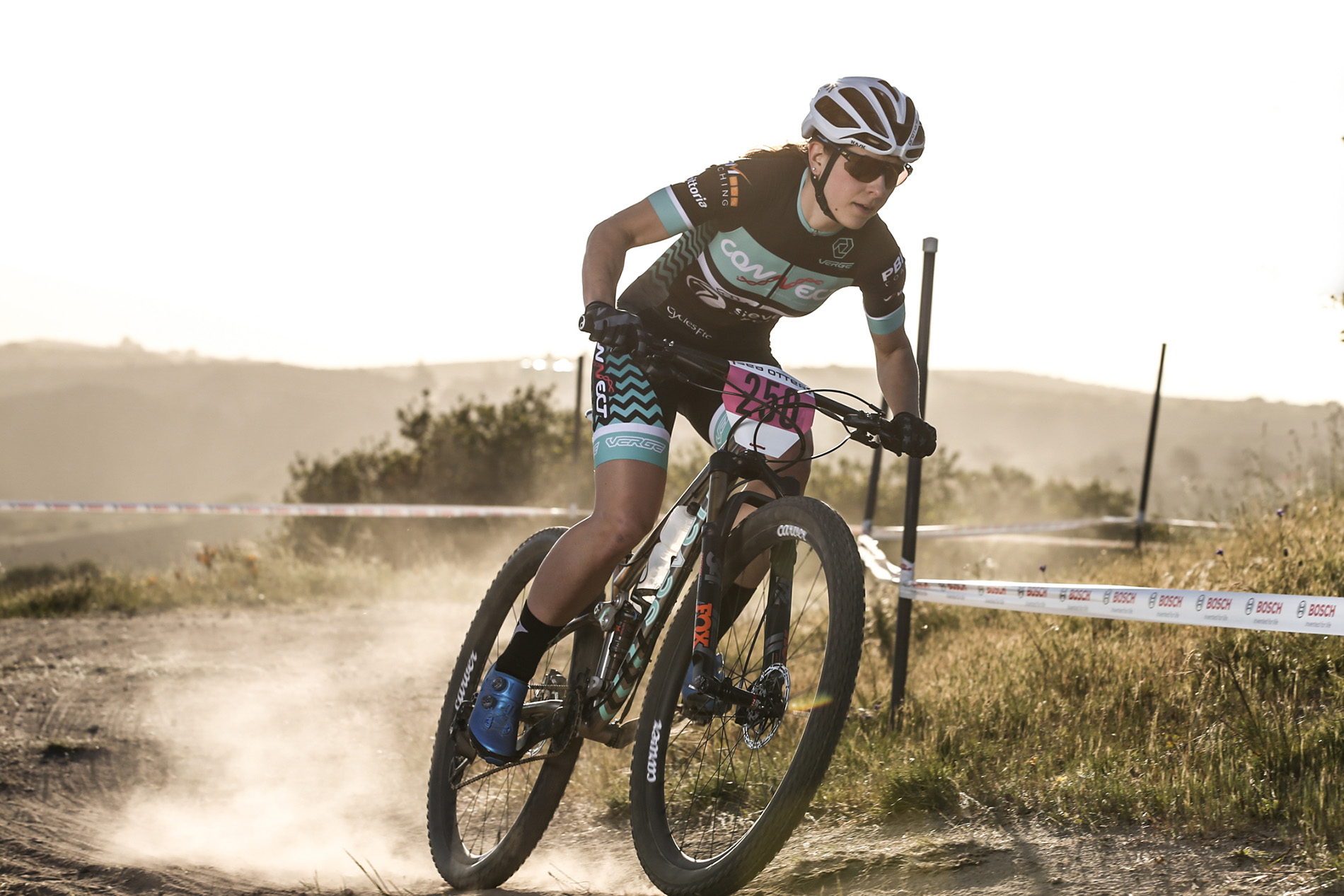History & Founding Principles
Seven Cycles began building bikes in January of 1997. At its conception, Seven's founders sought a name that would be as timeless, ageless and positive as the products they would create. Finally, 'Seven' was chosen because it is traditionally a number that holds positive connotations and no specific attachments to other objects. We had ambitions to sell bikes all over the world, so the seven continents idea played into our thinking as well.
Seven's founders and core build team all worked at Merlin Metalworks in Cambridge, MA, in the early days of the titanium boom. Merlin established itself as something of a cult brand, and over the decade plus that many of us worked there, we immersed ourselves not only in the craft of framebuilding, but also in the basic business practices that would later come to define our work at Seven.
In 1995 and 1996 Merlin was bought and sold a few times in quick succession and then relocated to Tennessee, which left the core Seven crew with some hard decisions about what do next. After some serious debate, beginning with the question, 'Does the bike industry even need another bike company?', we set out on a new course defined by building custom bikes on a short timeline with maximum input from the rider, a sales/design/delivery paradigm that didn't exist in the industry at that time.
Fulfilling the mission we set for ourselves required implementing a few big ideas. First, we were offering both products (bikes) and services (customization), so that the process of getting a Seven would be a fundamentally different buying experience, an experience that centered on the rider first, not the bike. This foundational idea, however, had to be more than just marketing (e.g. Seven - We put the rider first!). We needed a manufacturing model that gave substance to the experience we were proposing to deliver.
Single-piece flow (SPF) is the simple practice of building things one-at-a-time. This approach to framebuilding has myriad benefits for us as a custom builder, for the rider who wants something deeply personalized, and for our retail partners who need to carefully control their own inventory. Building bikes one-at-a-time allows us to focus on each rider's specific needs for geometry, comfort, handling, options, materials, aesthetics and long-term versatility. It also improves quality significantly over a batched building method.
Each builder is only ever responsible for one thing, the work in front of him or her, one set of details. The fewer hands touch each frame, the more responsibility each set takes. Typically only 2 or 3 builders work on a Seven. That maximizes accountability, while still allowing for a high-level of specialization by each builder, whether machinist, welder, finisher or painter.
Driving SPF as a viable means of producing high-end bikes is an underlying practice called Just-in-Time manufacturing (JIT). The idea here is that the materials we need to build each bike arrive in our factory as close to the time we need them as possible. Seven uses advanced forecasting models and innovative design to streamline our own operation, keep costs low, and maintain high focus on quality. JIT allows Seven to charge the same price for a US-made, custom bike, that many bike companies charge for stock-sized, mass-production bikes.
At the time of our founding, and still today, we find that riders misunderstand bicycle customization or feel overwhelmed by its possibilities. To that end, we developed the 5 Elements of Customization, a simple way to think about what every rider gets from a custom Seven.
A History of Innovation
1997
- Seven Cycles is founded
- Introduces the Custom Kit™ and client interview system, changing the meaning and possibilities of customization
- Introduces all-new fit system: The Seven Fit Methodology™ (SFM)
- Pioneers Rider-Specific tube set design
- Unveils 1st of its kind Titanium-carbon road frame, the Odonata
- Industry First: S-bend seat stays
- Unveils 1st of its kind Titanium-carbon road frame
- Produces titanium dual suspension bike, the Pendere
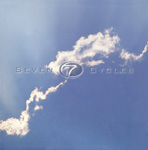
1998
- Builds 1,000th custom frame
- Moves to Watertown facility; expands space seven-fold
- Redefines customization again with the introduction of the Five Elements of Customization™
- Seven writes the titanium primer for the 21st century in Seven's Technical Supplement
- A frame with all carbon tubes except the chain stays, Titanium lugs
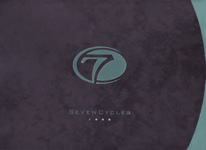
1999
- Becomes largest custom builder
- Digital Darwinism compares Seven to Dell in production systems
- Seven now builds more custom frames than any other manufacturer
- Team Seven (Mary McConneloug) wins 1st Masters World Championship
- R&D: Mountain frame with carbon seat tube introduced in Europe
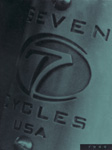
2000
- Industry First: 5E fork—First carbon fork with rake optimized to frame
- Team Seven wins 2nd Masters World Championship
- R&D: Cyclocross bike with carbon seat stays, seat tube, and top tube
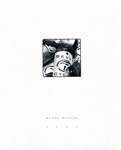
2001
- Seven partners with Paul Turner on the first customizable full suspension bike
- Wired magazine nominates Seven for Rave Award for Most Wired Ride
- Seven's design director speaks at MIT on engineering and titanium
- Offers Sola 007 and 007 SL, steel and Ti mountain tandems
- First coupled travel bikes

2002
- Introduces Ultra-Butted™ Titanium tube set
- Seven undertakes fourth expansion; adds 3,500 sq. ft.
- Team Seven named to US national team

2003
- Diamler-Chrysler selects Seven for Celebration of Functional Art exhibit at Geneva Motor show
- Launches performance-enhancing component line
- Unveils first customizable full-suspension mountain model
- Team Seven wins U.S. National Championship
- Introduction: Elium Titanium—Titanium/Carbon frame
- Introduction: Elium Steel—Steel/Carbon frame
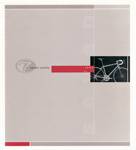
2004
- Brings painting in-house; makes major investment in spray facility
- Brings all tube butting in house for the purposes of 100% quality control and continued innovation
- Team Seven's Mary McConneloug selected for U.S. Olympic team
- Seven successfully fits 10,000th rider
- Seven introduces Olympic-edition Sola
- Introduction: Race carbon tubing: more stiffness options added to the mix
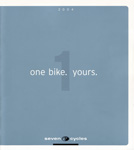
2005
- Introduces ground-breaking Diamas; the first fully customizable carbon frame to escape the physics of round tubes and lugged construction
- Team Seven wins 2nd U.S. National Championship
- Team Seven wins gold and bronze medals at Pan Am Championships
- Introduction: IMX—race tubing enables the use of carbon in mountain frames
- Introduction: 5E XL fork—raising the bar on lightweight performance and durability

2006
- A6 Carbon Technology™ platform, combining complete aesthetic freedom with full customization
- Undertakes fifth facility expansion; increases space by 40%
- Seven partners with Audi of America for Q7 launch
- Seven selected for exhibit at annual Technology Entertainment and Design (TED) conference
- Team Seven wins gold medal at Pan Am Championships
- Introduction: Diamas—Seven's first full-carbon frame
- Introduction: V-II—Full-carbon, lugless customization
- Introduction: Triad—Full-carbon, lugless customization
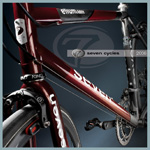
2007
- Develops and implements unique in-house fatigue testing system
- Undertakes fifth facility expansion; increases space by 40%
- Team Seven wins gold medal at Pan Am Championships
- Builds first belt-driven Seven
- Develops complete bike program, shifting from frame maker to bike builder

2008
- Seven invests in a large radius tube bender, used to curve down tubes for suspension fork clearance, and top tubes for additional stand over clearance.
- The first 650B wheeled Sevens are designed
- Our long awaited titanium seat post is brought to market
- Team Seven wins gold medal at Pan Am Championships
- The V-II (Diamas SL) earns a 2008 Editor's Choice nomination in the Dream Bike category by Bicycling magazine
- Seven's Mary McConneloug Wins the US National Mountain Bike Championships in cross country, places second in short track
- Seven's V-II earns a 2008 Editor's Choice nomination in the Dream Bike category by Bicycling magazine
- Seven sponsored rider Maureen Bruno Roy wins 30-34 US National Cyclocross Championship
- Seven's Mary McConneloug places 7th at the 2008 Olympic Games, the highest American finish for any Mountain Biker in Beijing, China
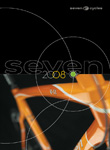
2009
- Our first commuter specific handlebar, the Tiberius Bar, is developed for the surging utility and commuter markets
- Seven begins fabrication of custom front and rear racks.
- Integrated seat post introduced as an option on Elium SLX, Elium SL, Mudhoney SLX, IMX SL and IMX 29 SL
- BB30 oversized bottom bracket option is made available
- Diamas SLX, SL and S models feature dramatic weight reductions and BB30 compatibility, while ensuring durability and performance
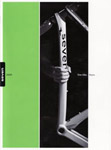
2010
- Interest in titanium utility bikes grows, Seven responds by creating the Traveler line of bikes
- Frames are updated to accept internal wiring for electronic components.
- Modifications are made in the Diamas bonding system to reduce weight while maintaining performance
- Creates Berlin Bike for the 2010 Berlin BIke Show, belt drive, integrated titanium headlight/bar/stem with generators

2011
- 44mm head tubes are added to the list of frame options
- Seven Axiom SL earns Dream Bike selection in Bicycling Magazine
- Sponsors the Cycling Silk Expedition across Central Asia with ultra-rugged Expat travel bikes
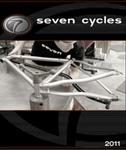
2012
- Introduction: 622—Titanium/Carbon
- Introduction: Mudhoney PRO—Titanium/Carbon
- One inch road chain stays are implemented to increase stiffness even further
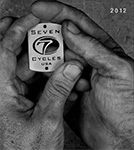
2013
- Introduction: Evergreen
- 142 x 12 rear axles now available
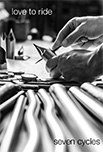
2014
- Introduction: 622m SLX, Ti/carbon mountain bike
- Introduction: Airheart line of travel bikes
- Singlespeed CX World Championships: Mo Bruno Roy
- First Evergreen gravel tandem
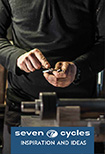
2015
- Designs Max 45 gravel-specific fork
- Introduces Sola PRO mountain bike
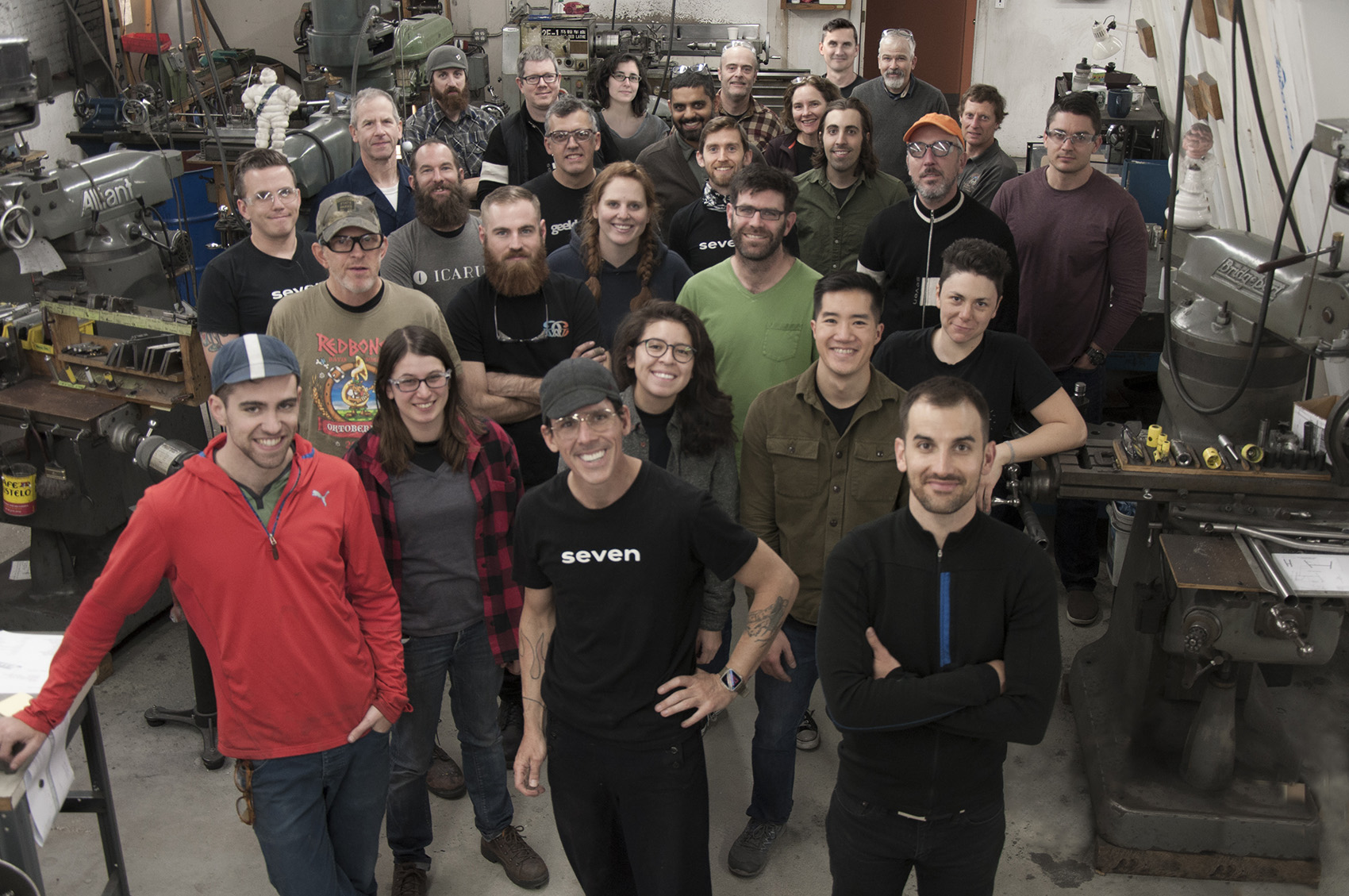
2016
- Introduction of Treeline fat bikes
- Introduction of RedSky medium-reach road bikes
- Builds Chris King 40th Anniversary bike Introduction: 622m SLX, Ti/carbon mountain bike
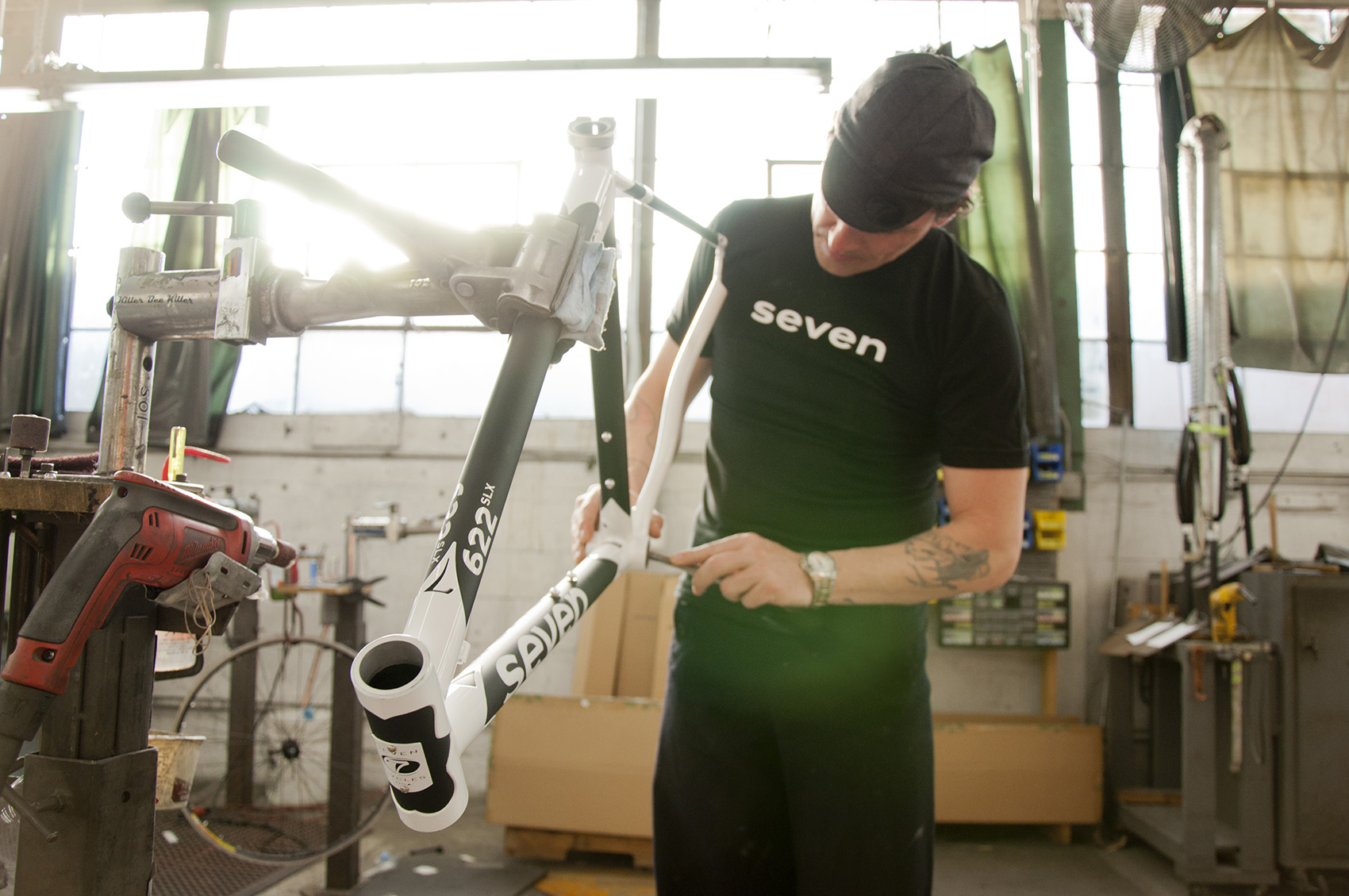
2017
- Celebrates 20th Anniversary
- Introduces XX weight saving program
- Introduces Matador gravel-specific fork
- Integrates Seven-designed, thru-axle, flat mount dropouts
- Migrates 622-line laser cut lugs across Ti/carbon product lines
- Offers T47 bottom bracket shells
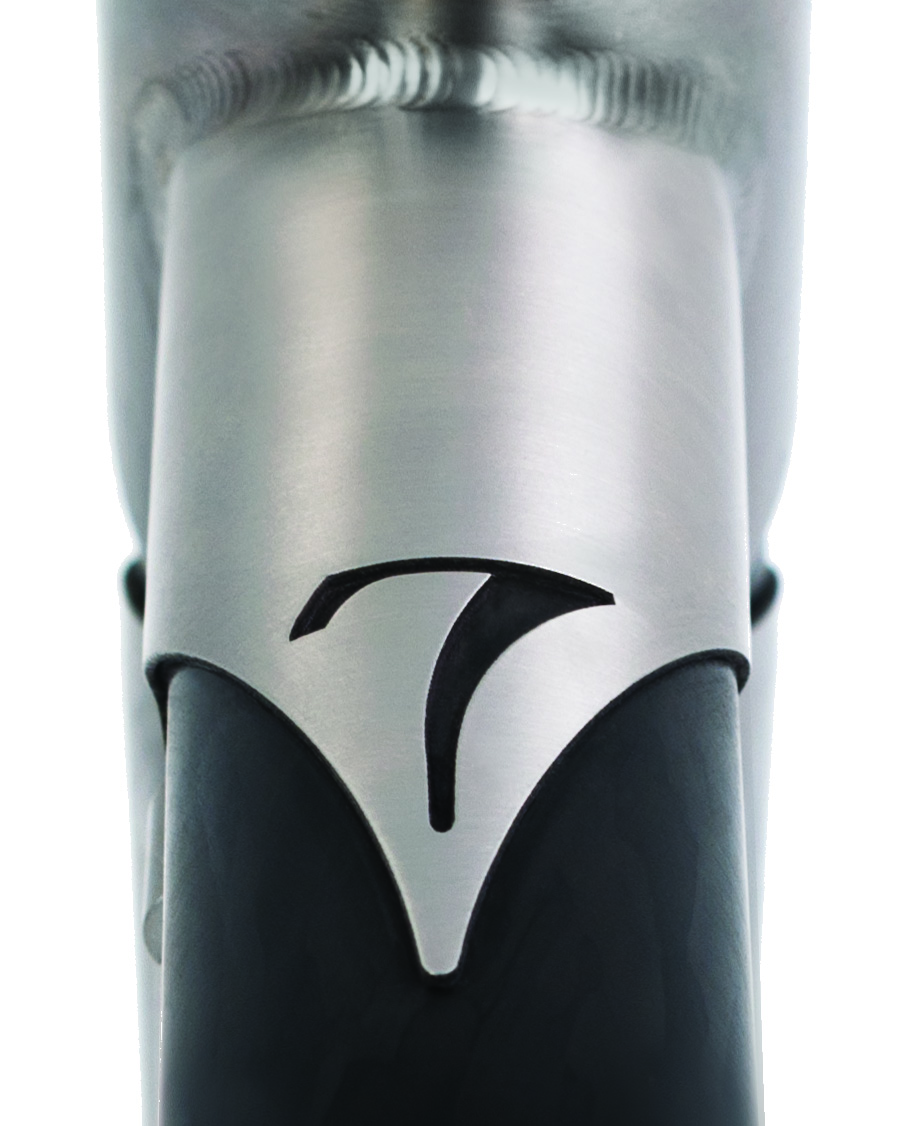
2018
- Releases PureRoad line of tapered road forks, short and medium reach
- Introduces Dropped and Chopped chainstay variations for disc brake bikes
- Introduces Moto seat stay option, with stays curved in 3 planes
- Builds one-of-a-kind Treeline 007 SL fatbike tandem
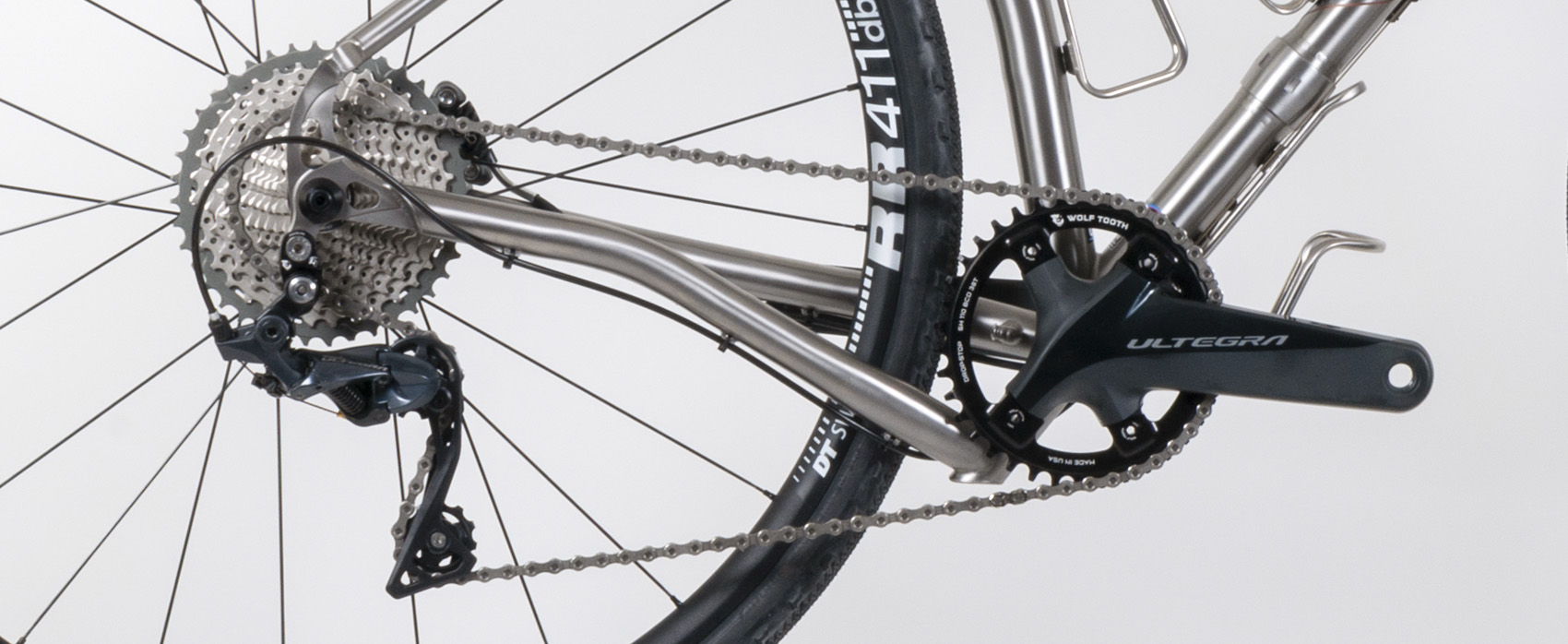
2019
- Expands X-series weight savings program to rim brake bikes
- Adopts 73mm BB standard for mountain bikes
- Introduces Balance Control System dual suspension platform, Mobius SL and KellCat SL
